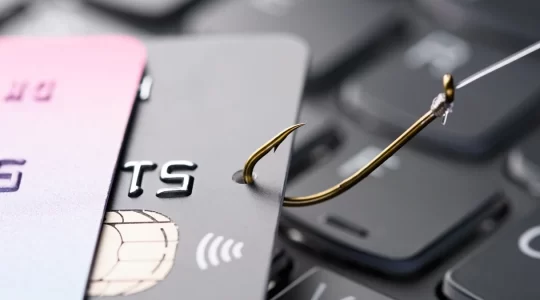Your Credit Score Questions Answered
You know your credit score is important, but do you know what it really means, how to find out what it is, or how it affects you?
Your credit score is a measure of risk to the lender. It is used by lenders to determine what type of credit you qualify for, so a better score can mean that you can borrow more money for your big purchases at a lower interest rate. (Lower interest means the borrowed money costs you less in the long run.)
Some employers, landlords, and insurance agencies may also use the score in making decisions about you.
What makes up my credit score?
The FICO score is the most common scoring method, used by about 90% of lenders, although you may also see a Vantage Score used in credit decisions.
Here are the criteria FICO uses to calculate your score and their weights:
- Payment history (35%)
- Amount owed (30%)
- Length of credit history (15%)
- New credit (10%)
- Credit mix (10%) — This is a measure of how many different types of credit you have, such as credit cards, auto loans or mortgages, and personal loans.
The Vantage Score is calculated using these criteria in order of importance:
- Total Credit Usage, Balance, and Available Credit (extremely important)
- Credit Mix and Experience (highly important)
- Payment History (moderately important)
- New Accounts Opened (less important)
- Age of Credit History (less important)
Because the different elements have different weight, it is easy to see how scores can differ between these two methods. Payment history and the amount of credit you use are highly important on both scoring methods, so those are two things you need to focus on when managing your credit. Experts recommend keeping your usage of credit below 30% of what is available and paying all your bills on time to keep your score at its best.
What is a “good” credit score?
Both FICO and Vantage Scores range from 300 to 850, but the rankings of “poor,” “fair,” “good” and “excellent” vary slightly. Generally, though, the higher the score, the better credit offers you will receive.
These are the ranges for the FICO score:
300-629 = poor
630-689 = fair
690-719 = good
720-850 = excellent
And here are the ranges for the Vantage Score:
300-600 = poor
601-660 = fair
661-780 = good
781-850 = excellent
How do I know what my credit score is?
There are online services that offer free credit scores, and these can be a gauge of where your credit score is and allow you to track trends, such as whether it appears to be increasing or decreasing. But they are not the exact scores lenders are looking at, so when you apply for a loan you may see a different number.
You can monitor your credit by accessing one free copy of your credit report from each of the three credit reporting bureaus at AnnualCreditReport.com. This won’t contain your score, but it will show you the information that goes into calculating that score and give you the opportunity to address any errors.
How can I build my credit?
If you’re looking to build credit, start small. Apply for one credit card and use it wisely. Make small purchases and pay them off each month. This will show that you can make responsible choices with credit and that you are continuing to live within your means.
Once you’ve had that card for a while, you may be ready to make a larger purchase, such as a car. Make a down payment, if you’ve got funds saved up to minimize the amount you need to borrow. When deciding how much car you can afford, consider monthly payments in addition to the total amount financed. And remember that even though you may technically be eligible to fully finance an expensive car or truck, keeping your monthly expenses low will help you not only keep building a good credit score but also fully fund an emergency savings account, a rainy day fund, and your other long- and short-term savings needs. Lower expenses can also help you manage income loss or other situations that can cause negative changes to your credit.
Taken together, these actions will help you keep your credit score moving in the right direction.
How can I improve my score?
Sometimes, it seems that building credit from scratch is an easy step-by-step process, but rebuilding and improving your credit score can be so hard. If you’ve been hit with a financial situation that has resulted in a lower credit score, go back to fundamentals. Make payments on time and pay debts off so you are using less of your available credit. It will take time to rebuild your credit, but as you make smart credit decisions, you will see that score improve.
Do you have more questions about credit and specific types of loans you can get from Heritage Grove? Read our online loan information or give us a call at 503-588-0211 or 877-695-8321.



